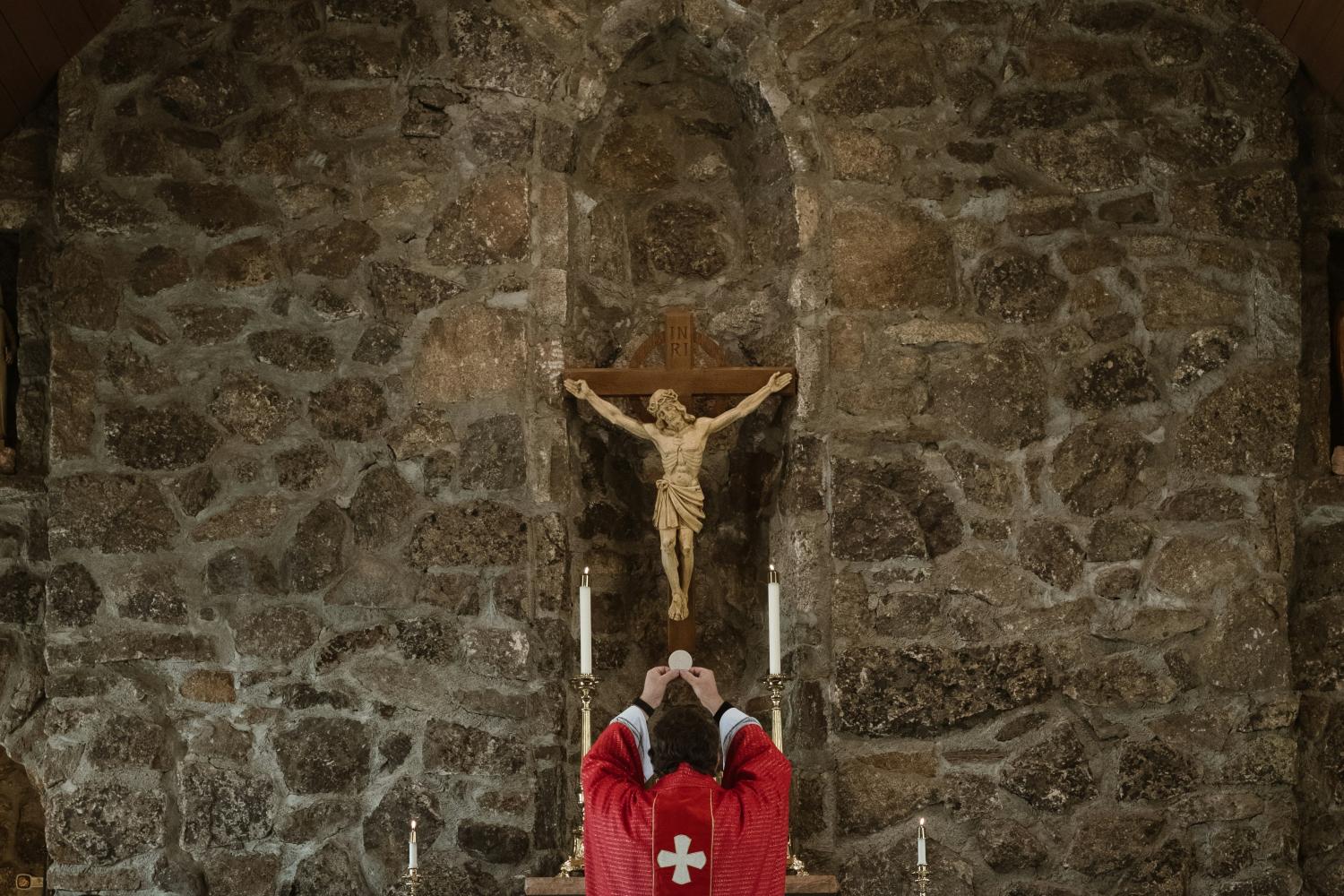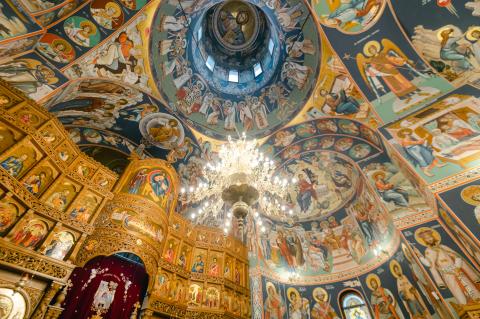
This week, tens of thousands of Catholics are converging on Indianapolis for the National Eucharistic Congress, a five-day gathering of bishops, priests, religious, and laity from around the nation meant to bear witness to the real presence of Jesus in the Eucharist. It’s a culminating moment for the American Church’s ongoing National Eucharistic Revival, and the end stop for its National Eucharistic Pilgrimage, one of the largest Eucharistic pilgrimages in history. As one might expect, the event’s significance is tremendous, and there’s a lot of good the Congress has on its docket: chances to gather and hear excellent Catholic speakers, to generate momentum for Catholic life in general, to connect people to each other for future work together, and to build confidence in the truth and goodness of the Catholic faith.
But it’s worth wondering: how do all those things connect to the Eucharist, itself? For it’s not the case that the Church just needed to pick any often misbelieved or unbelieved doctrine to use as a rallying point for gathering folks together for the sake of this broader set of goals; there are other doctrines the Church might have chosen, if it were. Rather, the Church’s worry over many Catholics’ neglect of orthodox teaching concerning the Eucharist goes well beyond just this particular doctrine. The Eucharist is not just one belief of the Church that stands alone among others; it is the key that unlocks the rest. It is the way the whole world works, and the Congress serves as an extraordinary occasion for reflecting on just how.
Catholics hold that the Eucharist is Christ, the very present representation of the Incarnation, of Christ made man, on earth. Christ is the center of all human life and history, and the Eucharist evinces how he comes to us and lives among us. So Christ – and therefore the Eucharist – is the central node of what we can call a sacramental understanding of reality: a way of seeing the world that maintains that the most important things are invisible, though they come to us clothed and veiled in the visible, such that we move from the obvious, sensible world to the unseen world by rightly reading the sacramental nature of things. This holds in terms of our view of ourselves and of other people; of the Church; of the natural world; in short, of everything.
Thus Catholics losing their confidence in the doctrine of the Eucharist is indicative of a much more encompassing wound: the loss of this sacramental vision of reality. We live in what is often a “scientistic” world, one which denies or ignores the sacramental dynamism of all things. And it simply isn’t easy to understand what’s going on at Mass once a week unless one recognizes that the liturgy is actually the most intense manifestation of a truth that is touching us constantly, all the time. Saint Paul points to that truth this way: "Though our outer nature is wasting away, our inner nature is being renewed every day. For this slight momentary affliction is preparing for us an eternal weight of glory beyond all comparison, because we look not to the things that are seen but to the things that are unseen; for the things that are seen are transient, but the things that are unseen are eternal” (2 Cor 4:16-8). The National Eucharistic Congress, Revival, and Pilgrimage all are inviting us to embrace and help others into this way of seeing the world and God – this way of holding that the most important realities are the invisible ones – which has largely been lost to us.
This, of course, is a very large but deeply worthy task, one which goes well beyond the confines of one weekend. So let’s pray for all the faithful converging on Indianapolis over the next several days, that the joy and energy these days are sure to inspire would not fade once they come to a close. Rather, let’s let this event inspire us for the real battle, which lies yet ahead – a battle for the conversion of our minds, of our entire way of seeing everything, both in our own lives and in the lives of all those we love.
Catholic nurses will have a presence at the Eucharistic Congress, highlighting the close relationship between the Christian faith and healthcare.
Has it been some time since you’ve prayed? Bishop Barron offers concrete advice on how you can engage in fruitful prayer this summer.
A Catholic essayist reflects upon the God who bridges the otherwise unbridgeable gap between the human and the divine: “One of the greatest epiphanies I have ever had is recognizing that there is a God on the other side of my prayers. Opposite my words is not a good feeling, a contemplative moment, or a poetic silence, but the Originator of the Universe, the Author of Life, the Sponsor of the True, the Good, and the Beautiful who knows and loves me better than I know and love myself.”
A Catholic artist is painting contemporary portraits of Christian martyrs.
In Saudi Arabia - where only Islam is permitted - a surprising number of “hidden” Catholics have found ways to practice their faith.
As Spain’s national soccer team defeated England to claim the European Championship, the public and well-known faith of their coach sparked headlines and conversations.
Debates concerning religious liberty and the provision of contraceptives sometimes overlook a simple fact: the “Pill” is not good for women.
If Donald Trump is elected president in November, Republican vice presidential nominee J.D. Vance would become the second Catholic vice president in American history. Vance, a relatively recent convert to the Catholic faith, has spoken on numerous occasions of what led him to the Church.


